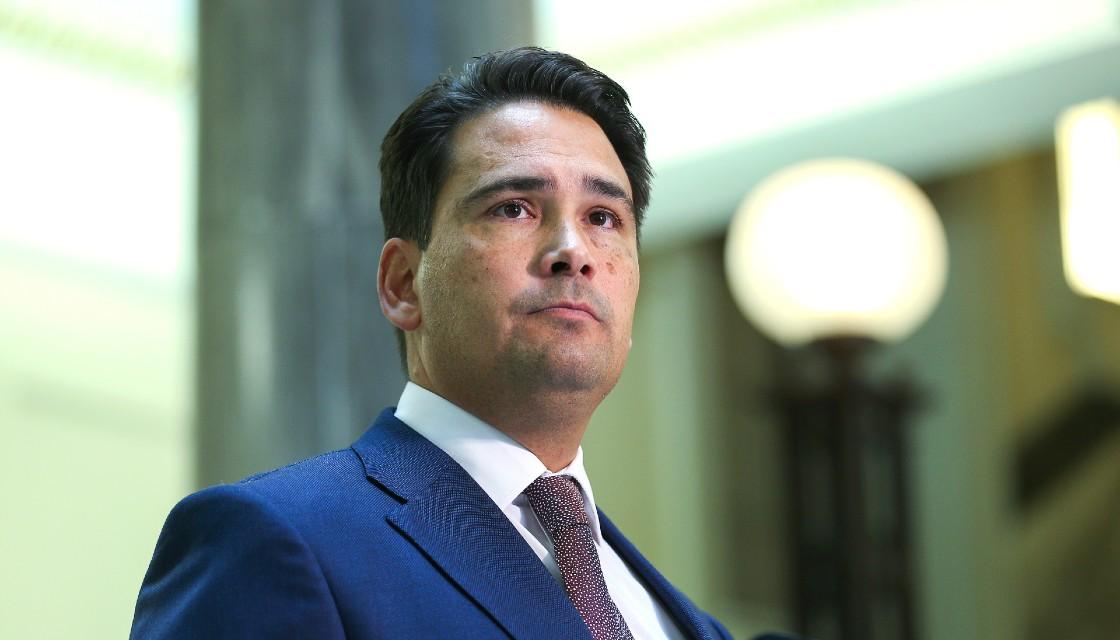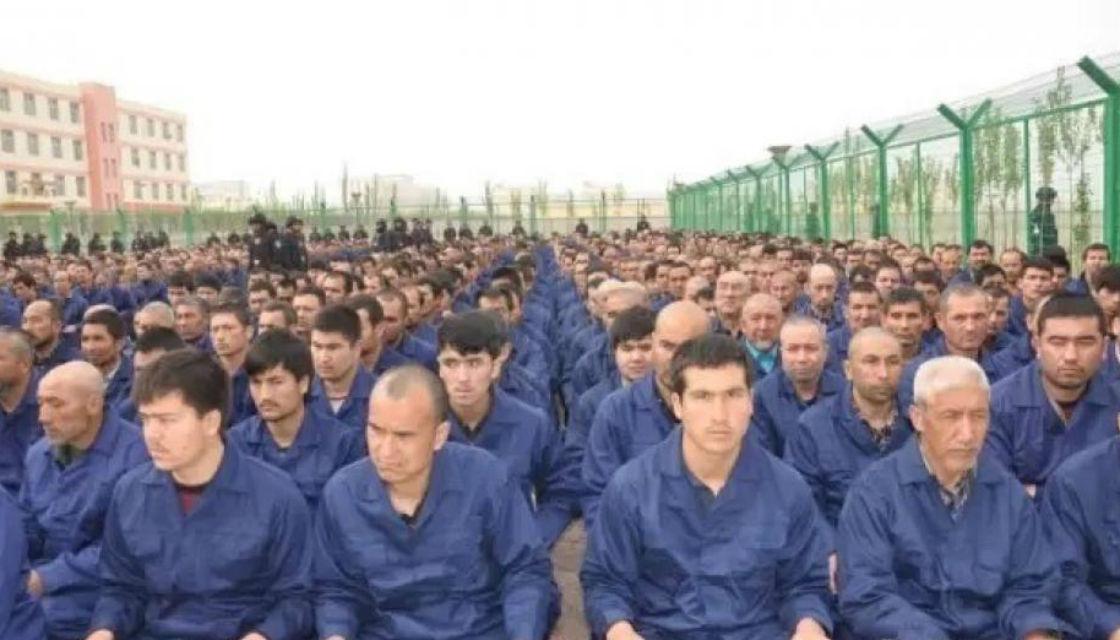In the face of a "delicate and dangerous" global situation with China, New Zealand must be proactive - but not provocative - in its dealings with the Middle Kingdom, Simon Bridges says.
From COVID-19, to an increasingly contentious relationship with the US, human rights breaches in Xinjiang and Hong Kong's judicial system crackdown, China's affairs and their global ramifications have been keenly observed throughout 2020.
To uphold our values and in keeping in line with our partners, New Zealand's Government has shown where it stands on several of the issues, often resulting in critical remarks from China itself.
But the approach is broadly supported by Simon Bridges, who could be dealing with China as Foreign Affairs Minister if National gains power after the 2020 election.
"When it comes to China generally, there hasn't been anything in recent times that has been said by either Prime Minister Ardern or Foreign Minister Peters that I have disagreed with, albeit, I do think there have been times they have been rather slow off the mark and could have been more forthright," Bridges tells Newshub.
The spokesperson advocates for a "proactive, not provocative" approach to China and for New Zealand to be less reliant on waiting for other countries to comment first before speaking out.
"Say when it is good and also condemn it when it warrants it," he says.
Bridges, who took on the foreign affairs portfolio after Todd Muller briefly ascended to the leadership position and had that reconfirmed under Judith Collins, believes we're at a "very significant moment in global affairs".
"There are all sorts of things. Obviously, COVID-19 and climate change. But right at the moment, the US-China relationship, and in a sense, just China, is the biggest issue in the world right now," Bridges says.
"It is frankly more delicate and dangerous than it has been. If you look back at the Clark, Key years, they may not have seemed it at the time, but they were simpler times. China is more assertive today than it was even a decade ago."

Hong Kong
A report out last week from the Australian Strategic Policy Institute seems to back that up. It found China’s use of non-militarised coercion or threats of negative action had sharply escalated since 2018.
And it's not just the big global players at risk of such tactics.
The report mentions three relatively recent examples of China using "coercive diplomacy" against New Zealand, such as its harsh rhetoric after New Zealand suspended its extradition agreement with Hong Kong in July.
That decision was made by the current Government in light of widely-criticised national security legislation being imposed on Hong Kong by China that provided Beijing greater influence over the financial hub's judicial system.

Foreign Affairs Minister Winston Peters has repeatedly expressed "concern" at the legislation and has called on China to uphold its commitment to continue to treat Hong Kong under the 'one country, two systems' principle. In early July, he announced a review of our relationship settings with Hong Kong and suspended the treaty after several Five Eyes partners halted theirs.
Bridges condemns the security law. He gives an example of the sort of forthright approach he believes is necessary with China in relation to the arrest of Hong Kong media tycoon and China critic Jimmy Lai under the new legislation.
"I would be straightforward in condemning that as well. That proves the fear is founded because the law is being used to silence anyone who is in any way not in mainland China's interest."
In mid-August, New Zealand released a joint statement with Five Eyes countries, again expressing "concern" at the "erosion of rights" in Hong Kong.
While Bridges says we must value our independent foreign policy, he supports working closely with our partners on issues like China.
"What we are seeking to achieve here is no more, no less than behaviour change. I don't believe New Zealand can do that by itself. It involves really something that I think would be incredibly important to me as Foreign Minister and that's developing deeper relationships with countries we are already great friends with and are like-minded to us."
- Why more than a million Uighurs are being held in camps in China
- 'Gravely concerned' New Zealand and security partners call for fair Hong Kong elections
- 6 Insane New Powers for Hong Kong Police
- Chaos expected in Hong Kong as anti-government protests continue
Bridges also sees value in considering a safe haven visa for Hong Kong nationals similar to what the United Kingdom and Australia have done, albeit on a much smaller scale.
"It could be a win-win. Both as the right thing to do in terms of our values, but also in terms of bringing in highly skilled people that we could do with post-COVID-19," he says
"It's a concrete, practical step."
Uighurs
Being true to our New Zealand values also means calling out human rights breaches.
China has increasingly been under fire for its treatment of more than 1 million Uighur people in camps in the province of Xinjiang. Former detainees have spoken of torture as authorities try to force prisoners to reject their faith. But China says the camps are for vocational education and counter-terrorism operations.
Bridges sees it as a human rights issue.
"Yes I do, and a violation. New Zealand's position needs to be very straightforward when it comes to China. We should say what we like and when we have very similar interests and goals. But also be clear when there is something that must be condemned."
Since taking on the foreign affairs role, Bridges hasn't met with the Chinese Embassy to express his concerns. He did briefly greet the ambassador at a summit in Auckland in July.
However, he has said he raised the tense relations between China and Hong Kong as well as issues around treatment of the Uighurs with officials while on a trip to China last year.
His visit there became possibly most well-known for an interview he gave to Chinese state television where he spoke about being amazed by China's prosperity. Bridges later said he was no China "apologist" and while millions of people had been lifted out of poverty in the country, he disagreed "with them when it comes to issues of human rights".
Prime Minister Jacinda Ardern also went to China last year and brought up "the issue of [human rights] directly" with President Xi Jinping.
New Zealand has recently been a signatory to several joint statements calling out China for its practices and the Prime Minister noted Aotearoa's stance on the issue at a recent business summit.
"The New Zealand Government takes a stance where as representatives of the New Zealand people we think that the public has a direct and a resounding interest in the outcome," she said.
"As you know, this has come to the fore recently around developments like Hong Kong's new security law; the situation of the Uighur people in the Xinjiang province; and Taiwan's participation in the World Health Organization.
"This is important to who we are as New Zealanders."
Bridges rules out applying sanctions on China, our largest trading partner with two-way trade worth $33.4 billion in 2019.
"Our trade with China is something that is incredibly good for New Zealand, in our interests, and what's more, we would only be punishing the Chinese people who want and need our high-quality produce and services," he says.
But with China aggressively speaking out against the likes of New Zealand suspending its extradition deal with Hong Kong, should Kiwis be concerned?
"That is them expressing their position, and I think given how China has reacted to other countries doing similar things, it was to be expected," Bridges says.
He believes a balance can be struck, pointing to Australia, where, despite a ramping up of rhetoric on China's treatment of its peoples, trade in August between the two nations was 4 percent higher than that time last year.
"We want to continue trading with China. In fact, we want to continue warm overall relations, given our people-to-people contact and our shared history. But there will be these issues and regrettably, at the moment, there are more of them than there have been in sometime, which we must speak out on."
New Zealand must also diversify who we trade with and ensure we don't have all eggs in one basket, Bridges says. He'd continue work on several Free Trade Agreements (FTAs) currently under negotiation - such as with the UK, EU, and RCEP - if he was in such a position to do so.
"That's a very important strategy for New Zealand that I think is bipartisan in its nature. Whether its Winston Peters, David Parker or myself doing trade and foreign affairs, we would be seeking to press in on those FTAs.
"Our top priority needs to be an EU FTA. Both for the trade, but also because geopolitically it is important to be there, better integrated with like-minded nations."




